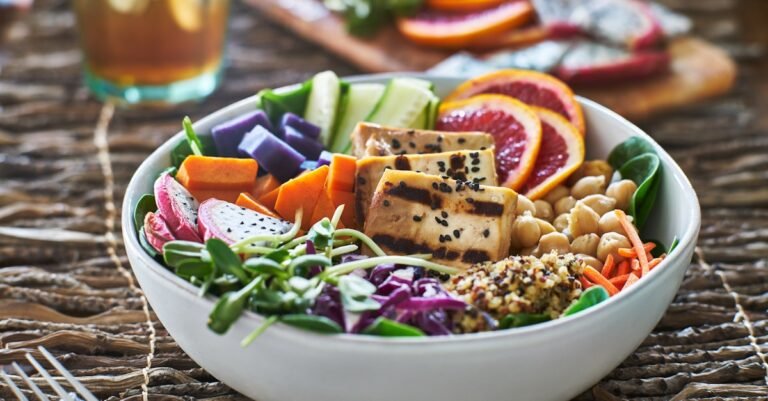16. Chia seeds
Chia seeds are small but mighty. Two tablespoons (28 g) of chia seeds contain about 4 g of protein, 11 g of fiber, and healthy omega-3 fatty acids.
You can add chia seeds to smoothies, yogurt, oatmeal, or baked goods. When soaked in liquid, they also create a gel-like texture that can be used as a vegan egg substitute in baking.
17. Spirulina
Spirulina is a type of blue-green algae that grows in both fresh and saltwater. It’s often sold as a powder or supplement.
Three tablespoons (30 g) of dried spirulina provide over 15 g of protein. Spirulina is also a good source of B vitamins, iron, and antioxidants.
You can mix spirulina into smoothies, juices, or energy balls for a plant-based protein boost.
Eating a variety of plant-based proteins can help ensure that you’re getting all the essential amino acids your body needs. Amino acids are the building blocks of protein and are crucial for many functions in your body.
Many plant-based foods are not only rich in protein but also in other important nutrients like fiber, vitamins, and minerals. Incorporating a variety of these plant-based proteins into your diet can help you stay healthy and energized on a vegan diet.
Whether you’re a long-time vegan or just starting to explore plant-based eating, these 17 vegan sources of protein can help you meet your daily protein needs and enjoy delicious, nutritious meals.
When following a vegan diet, it’s important to ensure you’re getting enough protein to support your overall health and well-being. While many people may think of animal products as the primary source of protein, there are plenty of plant-based alternatives that can provide all the protein your body needs.
16. Nutritional yeast
Nutritional yeast is a popular cheese substitute that is the inactive version of Saccharomyces cerevisiae, a yeast commonly used in brewing beer and making bread. Not only is nutritional yeast a complete protein source, but a half-ounce serving (16 g) contains 8 g of protein. Additionally, it is rich in B vitamins, which play a crucial role in energy production and red blood cell formation.
17. Meat alternatives
Meat alternatives, such as plant-based burgers, sausages, and chicken substitutes, can also be excellent sources of protein. However, it’s important to note that the nutritional content of these products can vary significantly from one brand to another. While meat alternatives are generally considered healthier than their animal-based counterparts, it’s best to consume them in moderation. Opting for whole plant foods in their natural state is typically the healthiest choice.
18. Peanut butter
Another great source of protein for vegans is peanut butter. Not only is it delicious and versatile, but it also provides a substantial amount of protein per serving. However, it’s essential to check the ingredients list, as some peanut butters may contain honey, making them unsuitable for vegans.
Summary
Vegan diets exclude meat and animal products, but with careful planning, it is possible to meet your protein needs solely from plant-based sources. Legumes, grains, nuts, seeds, nutritional yeast, and meat alternatives are all excellent options for vegans looking to increase their protein intake. These plant-based protein sources also offer essential vitamins and minerals to support overall health and well-being.
If you’re looking for personalized nutrition advice tailored to your individual needs, consider taking our free quiz to get started on your journey to a healthier, plant-based lifestyle.

